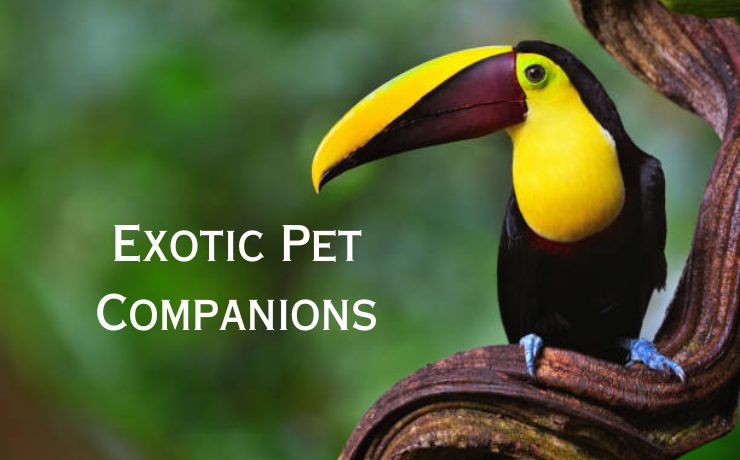Beyond The Ordinary: Embracing Exotic Pet Companions

Some extraordinary creatures of nature have captured the hearts of pet enthusiasts seeking companionship beyond traditional pets. However, the realm of exotic pet ownership demands a bit of knowledge, and also there is huge responsibility upon your shoulders to take care of them. Dhanush Kumar unveils the captivating facts you need to know about exotic pet ownership.
- Legal Considerations

Before getting an exotic pet, you must know about the web of legalities. Each region possesses its own set of rules governing these fascinating creatures. Each city has its regulations, and some species may be prohibited, while others may require special permissions or licenses. You must be familiarized with the laws and regulations in your area to ensure that you can legally own an exotic pet.
- Specialized Care

Exotic pets have specific needs that differ from traditional pets. Research the dietary requirements, habitat conditions, and environmental needs of the exotic pet you are considering. Some animals may require specialized diets, temperature-controlled enclosures, or specific lighting conditions. It is important to create an environment that closely mimics their natural habitats.
- Socialization and Training

Exotic pets, like any other animal, require socialization and training to thrive in a domestic environment. Research the social needs of the specific species you are interested in and find out if they can be trained or not. Building a bond with your exotic pet will contribute to its overall well-being and happiness.
- Potential Health Risks:

Owning exotic pets carries certain health risks for both you and the animal. Some exotic species may have specific diseases that can be transmitted to humans, while others may have specific health issues. Regular veterinary check-ups and hygiene practices are essential to tackle these risks. Consult with a veterinarian who is experienced in exotic pets to ensure the health and safety of both you and your pet.
- Financial Commitment

Exotic pets come with a higher price tag than traditional pets, and their maintenance can be costlier as well. In addition to the initial purchase cost, you need to factor in some expenses such as equipment, veterinary care, and high-quality food. Be prepared for these financial commitments before bringing an exotic pet into your life.
Conclusion:
Owning an exotic pet can be a rewarding and unique experience, but it also requires careful consideration, education, and dedication. By taking care of exotic pets responsibly, you can create a mutually beneficial relationship with a remarkable creature.
Ad



